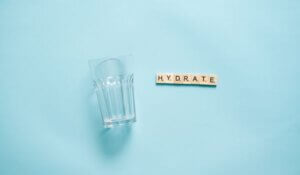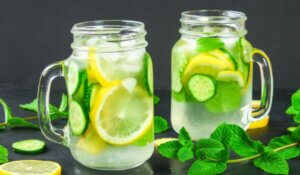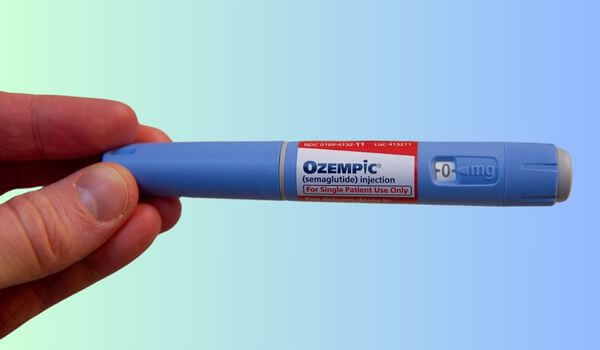
Nutrition and Hydration Week started in 2012 to help people learn about the risks of not eating or drinking properly. Now, it’s celebrated around the world, with different health and care organizations hosting fun events and campaigns to show the importance of healthy eating. Today, I plan to share my top tips for nutrition and hydration with you in honor of this week!
How can I participate in Nutrition and Hydration Week 2025?
During Nutrition and Hydration Week, from March 17th to 23rd, the main event is the Global Tea Party, which is held on Wednesday the 19th. On this day, everyone involved in the week is encouraged to host tea parties in their community to celebrate together.
Hosting a tea party is a great way to show dedication to good nutrition while helping patients and customers improve their diets. It’s also a fun way to bring people together and create a joyful atmosphere. To make planning easier, there are recipes, invitations, menus, and place card templates available on the website’s resources page. Everyone is encouraged to share photos of their tea parties on social media using the hashtag #NHWeek and tagging @NHWeek on Twitter.
Top tips for hydration
There’s a reason people say “water is life,” and that is because it’s true! Water is a vital element that the body needs to survive, but it can’t make enough on its own. This means people have to get water through their diet. While staying hydrated is one of the most important ways to stay healthy, not everyone (myself included) enjoys drinking plain water. The good news? There are plenty of other healthy options to help keep you hydrated.
It’s often said that you should drink eight cups, or about half a gallon, of water a day to stay healthy. While this is a good general guideline, it doesn’t take into account differences like age, gender, body size, or how active someone is, so it is best to talk to a healthcare provider to establish your specific needs.
Hydrate while dehydrating
Alcohol makes your body lose water because it causes you to urinate more frequently. This dehydration is one of the main reasons hangovers can feel so bad. To avoid this, it’s a good idea to drink a glass of water between each alcoholic drink to stay hydrated and use sparkling water as a mixer for spirits rather than a sugary soda.
Tea and coffee may have a diuretic effect, which means making the body lose water, but it’s not much unless the caffeine intake is excessive. Most healthy adults can safely have up to 400 mg of caffeine a day, which is around four cups of coffee or eight cups of tea. It might be worth trying to swap out one or two of those teas or coffees this week for a caffeine-free herbal tea or glass of lemon water instead, just to be on the safe side!
Measure fluid intake
I’ve found downloading a water reminder app on the phone to stay on track throughout the day can be helpful. Some of these apps even give virtual cheers when you reach the water-drinking goals. How motivating! If you’re more of an analog person, having a water container filled each day with how much you need to get through can help. I have a half-gallon bottle that needs to be completely finished by the time I go to bed at night, and I keep it where I can easily see it on my work desk or kitchen bench.
Water doesn’t have to taste boring

Try flavored tea infusions on a chilly winter’s day! There are so many kinds available now, I never find myself bored. Fruit-based teas are my go-to to sip through the day, peppermint tea with honey is my coffee alternative when I’m out for a catch-up with friends, and after dinner, I enjoy a dessert-like tea, such as caramel and date flavor or a fall spice blend.
Create a fruity slushie by blending fresh fruit, ice, and water. It’s an easy way to stay hydrated throughout the day.
A soda maker can be a great addition to any home if you like your water bubbly. Many people prefer the taste of fizzy water over plain water. Sparkling mineral water is also a good choice as long as it doesn’t have added sugars or sweeteners.
Eat fruits and vegetables with a high water content
Eating fruits and vegetables with lots of water in them is a great way to stay hydrated. Examples of these include melons, oranges, carrots, lettuce, cabbage, cucumber, and celery. Keeping a container of sliced fruit in the fridge makes it easy to grab a healthy snack.
Top tips for eating well
Structure and plan
Following a planned eating routine makes it easier to get the right amount of food and drink from all the major food groups. Eating without a set plan often leads to consuming too much food and drink or the wrong kinds, like those high in saturated fat, added sugar, salt, and calories. This can result in missing out on important nutrients and fiber that the body needs.
Eat with others
Eating with others at the dining table helps people eat more regularly and make healthier food and drink choices compared to eating alone or in front of the TV. Group meals often include a wider variety of foods from the five food groups. For instance, many of my clients say they don’t feel like cooking vegetables when it’s just for themselves, but in a social setting, they are more likely to offer a variety of foods.
Watching TV should be discouraged while eating as it is linked to eating more fast food and less healthy food and drink. It also makes it harder for people to notice when they are hungry or full.
Prioritize carbs that are high fiber or starchy carbohydrates
About a third of a person’s diet should come from starchy carbs like potatoes, bread, rice, pasta, and cereal. It’s better to pick wholegrain or high-fiber options, like wholewheat pasta, brown rice, or potatoes with the skin left on. These choices have more fiber than white or refined carbs and can help people stay fuller for longer.
Eat plenty of plants
Experts suggest eating five servings of different fruits and vegetables each day. These can be fresh, frozen, canned, dried, or even juiced. Reaching that goal is simpler than it seems. For example, adding a banana to cereal in the morning or choosing fruit as a snack instead of something less healthy can make a big difference.
Eat more fish
Fish is a great way to get protein, along with important vitamins and minerals. Experts recommend eating fish twice a week, with a focus on oily fish. Oily fish, like salmon, trout, herring, sardines, and mackerel, are rich in omega-3 fatty acids, which can help lower the risk of heart disease.
Cut down on refined sugar
Eating or drinking too much sugar raises the risk of weight gain and cavities. Sugary food and drinks are usually high in calories, and having them too often can lead to obesity. They can also harm teeth, especially if eaten between meals.
Added sugars are the types that people should cut back on, which are sugars added to foods or drinks rather than sugar that naturally occurs in the food, such as the natural sugars found in fruits or milk.
Food labels are useful for checking sugar content. If a food or drink has more than 0.8 oz of total sugar per 3.5 oz, it’s considered high in sugar. If it has 0.18 oz or less per 3.5 oz, it’s considered low in sugar.
Invest in good-quality dietary supplementation
Sometimes, no matter how well-intentioned one is, supplementation may be needed to cover any nutritional gaps. Think folic acid during pregnancy or vitamin D for people who don’t get enough sunshine. A good quality multivitamin and supplement plan tailored for men or women might be helpful for adults wanting something with a broad spectrum to help improve health and well-being.
Staying hydrated and eating well are essential for maintaining a healthy lifestyle. By making small, intentional changes like drinking more water, incorporating fruits and vegetables into meals, choosing whole-grain carbs, and cutting back on refined sugar, you can support your overall well-being. Remember, balance and consistency are key. Focus on creating habits, and over time, these small shifts can lead to significant improvements in health.
FAQs
 What are the signs of poor nutrition and hydration?
What are the signs of poor nutrition and hydration?
Signs of poor nutrition and hydration can include fatigue, weakness, frequent illness or infections, difficulty maintaining a healthy weight, and slower healing times for wounds or injuries. Dehydration may also cause symptoms such as thirst, dry mouth, headaches, and dizziness.
How many calories should men and women eat in a day?
The recommended calorie intake for adults varies depending on factors such as age, activity level, and gender. According to the US Office of Disease Prevention and Health Promotion, on average, adult men need around 2,500 calories per day, while adult women need around 2,000 calories per day. However, this can vary based on individual needs, so consult with a healthcare professional for personalized recommendations.
Should I follow a specific diet or meal plan?
There is no one-size-fits-all approach when it comes to nutrition and health. For healthy individuals it is best to focus on incorporating nutrient-dense foods into meals and finding a balance that works for you. Some people may benefit from following a specific diet or meal plan, but this should be discussed with a healthcare provider.

 What are the signs of poor nutrition and hydration?
What are the signs of poor nutrition and hydration?














